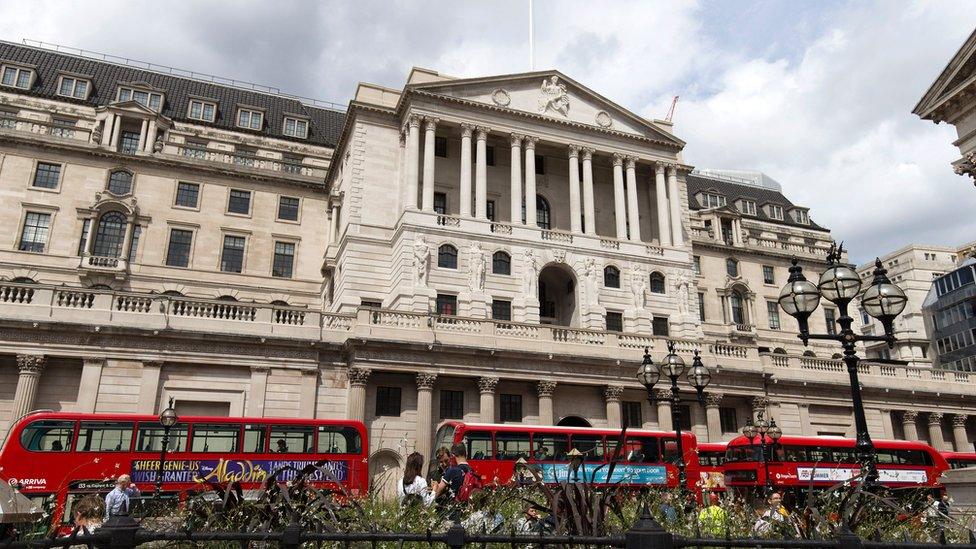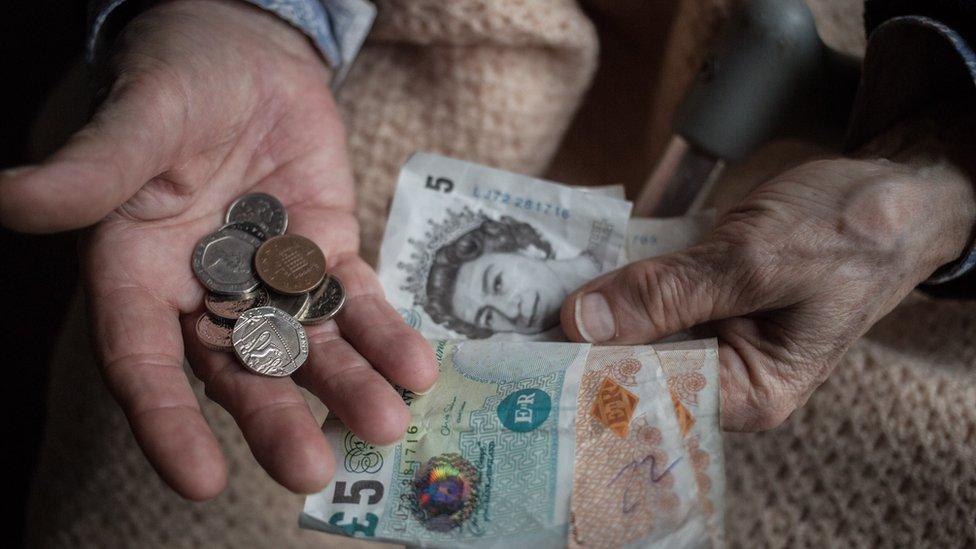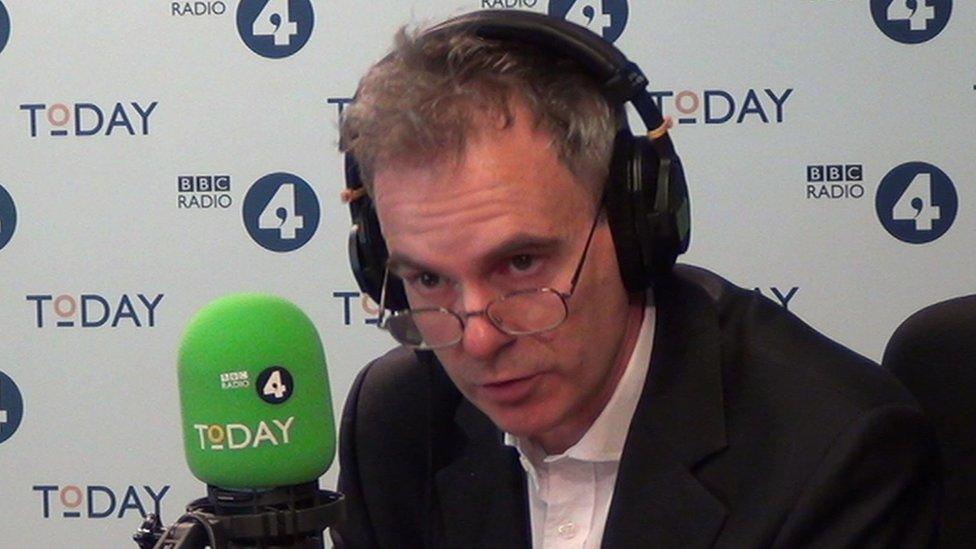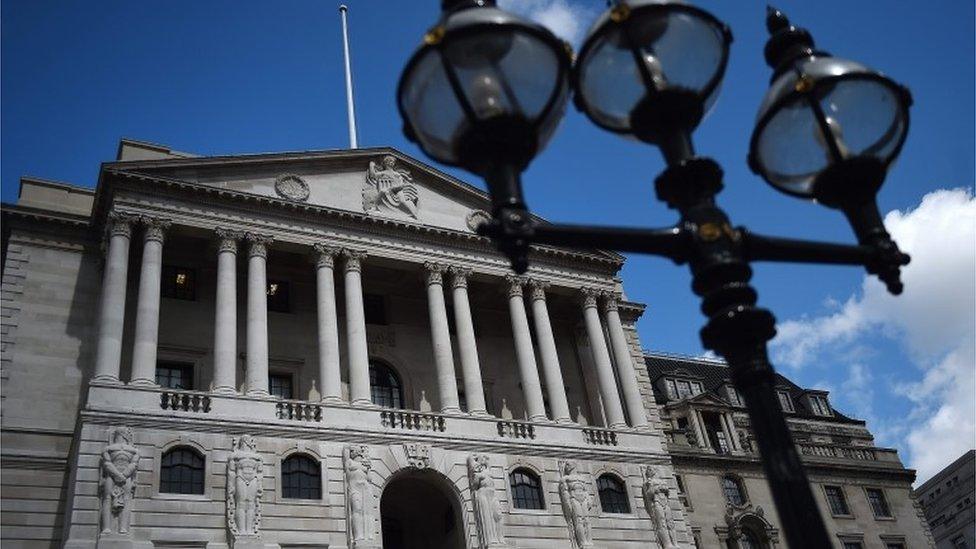Return on UK government bonds turns negative
- Published

The return on some UK government debt turned negative after the Bank of England missed its target in a new bond buying operation.
The Bank had offered to buy government bonds, or gilts, as part of its new quantitative easing (QE) programme to stimulate the economy.
But the bank fell £52m short of its £1.17bn target when it failed to find enough sellers.
That has driven up prices and pushed down the return or yield, to investors.
As bond prices rise, yields fall, and vice versa.
Buying government bonds is often considered a safe investment but they now offer a tiny, in some case negative, return.
On Wednesday morning gilts maturing in 2019 and 2020 were yielding -0.1%.
Surprise move
The Bank of England has been buying gilts at auctions in the market since 2009 in its QE programme to push money out into the banking system, to be lent onwards to businesses and individuals.
It announced a new £60bn round of government bond buying last week.
These "purchase operations" will take place three times a week until October.
Tuesday was the first time it has not been able to buy as many gilts as it planned.
However, on Wednesday the Bank held another buy-back for bonds with shorter maturities, which was 4.7 times oversubscribed.
Part of the bond-buying programme will also involve buying up a limited amount of corporate bonds, fixed interest debt issued by companies.
Sources close to the Bank say the market was taken by surprise by this new auction, which was announced only last week, and many of the big pension funds that hold these ultra-safe investments had not got their plans in place.
They added that the market was also suffering from thin summer trading, with many of the important people who decide on the plans on holiday.


Analysis: Jonty Bloom, BBC business correspondent
The British economy is facing a huge potential problem - a liquidity trap. It may sound like something under your kitchen sink but it's standing in the way of an economic recovery.
The Bank of England is so worried about the shock of Brexit to economic growth that it is cutting interest rates and trying to pump money into the economy, by buying billions of pounds worth of gilts. Gilts are how the government borrows money and are seen as a very safe investment.
By buying them, the Bank of England hopes that it will encourage the sellers to spend the money they have raised in ways that boost growth; building new factories or spending in shops for example.
But as the Bank of England cuts interest rates, pension funds and other investors search for something that pays a reasonable level of interest - and those are gilts. The lower interest rates go, the more they want to hold on to these safe and rewarding gilts.
This is the liquidity trap, the more the Bank of England tries to pump money or liquidity into the economy, the more investors want to put it somewhere safe, boring and unproductive.

'Challenge'
The Bank is expected to roll over the £52m it failed to buy this month to another auction later in the year.
The Bank's failure has had a similar effect on other bond markets with German bund yields falling sharply.
Mike Amey, managing director at Pimco said: "The inability of the Bank of England to buy all of the bonds they wanted to yesterday does pose a challenge two days into their six month gilt buying programme.
"As a key part of the current policy easing, they will certainly hope that yesterday's events are not repeated. However the fact that they will only deal with the shortfall in three to six month's time suggests they are concerned about struggling to buy enough bonds in future asset purchases."

Short changed - gilt yields have a direct effect on pensions
Pension impact
The price and yield on gilts have a huge effect on individuals and governments.
For governments, low yields make it easy for them to borrow cheaply.
But for individuals, especially those seeking a retirement income, and wanting to buy gilts now, low yields mean low returns on their savings.
People retiring have traditionally bought an annuity - a financial product that promises a guaranteed income for life. Companies that sell annuities need to keep buying gilts to back that liability. The lower the yield on gilts, the less they can offer to the holder of the annuity.
As for final-salary pension schemes - which offer a set level of income - they also need to buy safe long-term investments to pay scheme members. But the lower gilt yields go, the less income they have to meet the costs of the scheme.
Many economists believe that pension funds will continue to be very reluctant to sell gilts which they bought more cheaply when yields were higher, and which still give them a good return.
- Published1 November 2022

- Published5 August 2016

- Published4 August 2016
